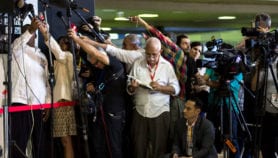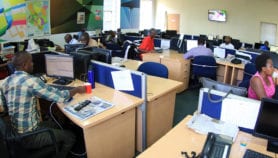By: Jia Hepeng
Send to a friend
The details you provide on this page will not be used to send unsolicited email, and will not be sold to a 3rd party. See privacy policy.
[COPENHAGEN AND MALMO] Science communicators from around the world have devised recommendations to put forward to the UN for better communicating climate change impacts and mitigation methods.
The recommendations arose from the Copenhagen Challenge project, which took place in Copenhagen last week (26 June) at the Public Communication of Science and Technology (PCST) conference, and will be submitted for consideration by the UN Framework Convention on Climate Change (UNFCCC).
While climate change is an established fact in the scientific community, it is still a challenge to persuade people to take action, said Mikkel Bohm, director of the non-profit organisation Danish Science Communication, at the conference.
He said the gathering of more than 500 science communicators at the PCST meeting offered a marvellous chance to "build bridges and dialogues in societies on the issues of climate change".
The Copenhagen Challenge consisted of 14 discussion topics, such as how to communicate climate change to communities without access to modern mass media, dealing with regional differences in climate change and communicating to make people change their behaviour.
The topics were distributed to all PCST delegates, who were organised into focus groups to offer up to three recommendations to tackle any of the challenges.
Recommendations included the use of natural meeting places such as schools, shops and hospitals for climate discussions, adopting folk arts, games, toys, and dances as communication tools, and focusing the design of climate strategies on identified local problems and needs. Another suggestion was to "localise both the impacts of climate change and the impacts of people’s activity on the climate" to change people’s behaviours.
"We have had an overweight of recommendations. All of them will eventually be chosen by people of relevance at UNFCCC or elsewhere," Bohn told SciDev.Net.
Manoj Patairiya, president of Indian Science Writers’ Association, said the challenge offered a constructive, open platform to discuss the issues surrounding climate change communication.
But, Manoj told SciDev.Net, there should be more topics related to the communication situation in the developing countries, such as the contradictions between supporting development and mitigating climate change.













